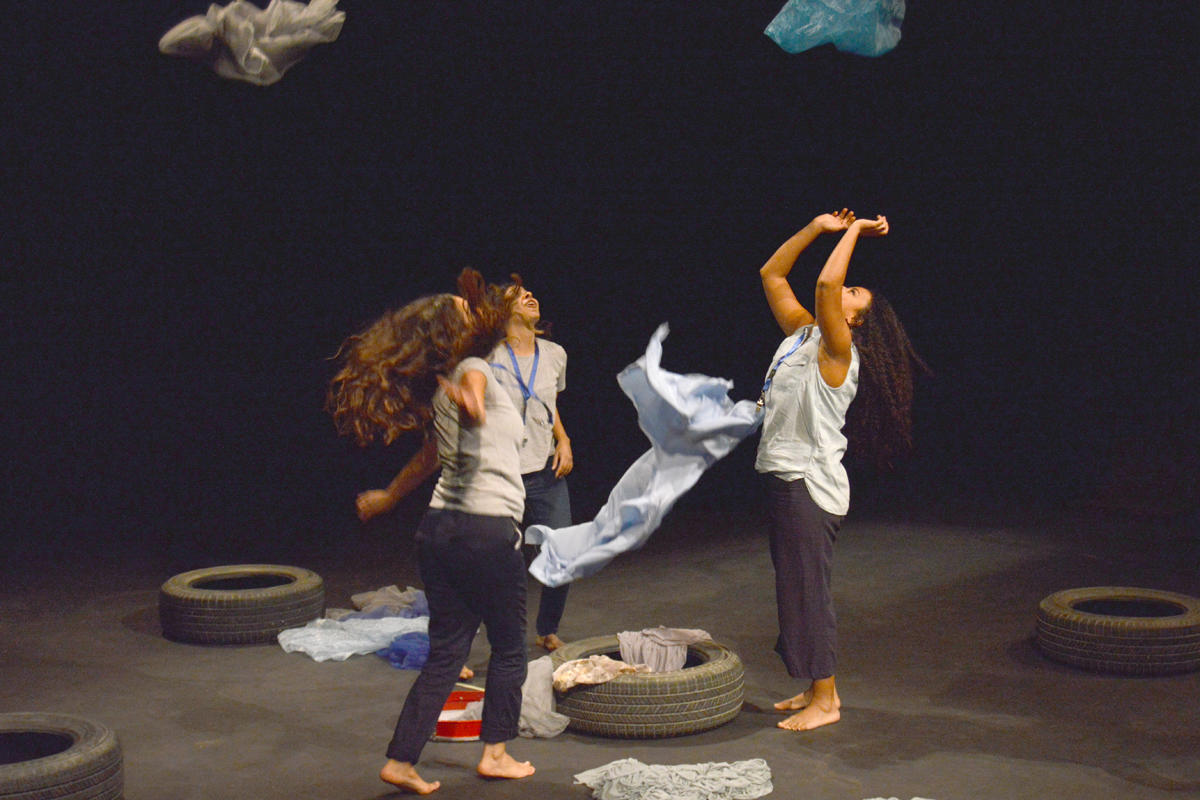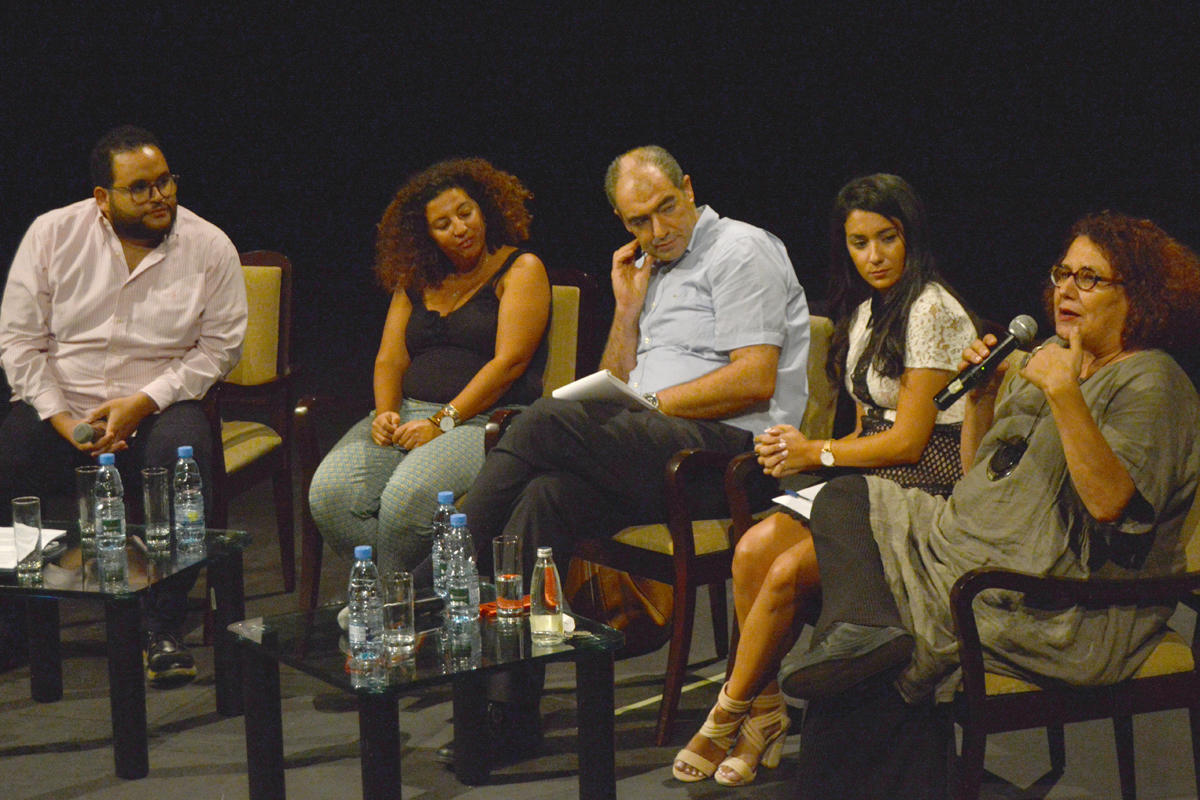Play Tackles Mental Health in Women
Mothers experiencing depression and exclusion use their stories to create a stirring theater production.
Three mothers tackled depression, stigma against children with disabilities, and social pressures in a moving performance using storytelling, music and dance to convey emotions.
They were taking part in the production of Ta’ Sakena, a play about mental health issues by Egyptian director Nada Sabet presented by the Institute for Women Studies in the Arab World (IWSAW) and the Department of Communication Arts in Gulbenkian Theater on September 17.
The play was followed by a panel discussion between Associate Professor of Theater Lina Abyad, Associate Professor of Education Ahmed Oueini, Catharsis-Lebanese Center for Drama Therapy Project Manager Lama Daccache, and Sabet, with Assistant Professor of Music Amr Selim acting as moderator.
The production was the culmination of a year-long theater workshop with 12 women whom the director met at Al-Abbasiya Psychiatric Hospital in Egypt.
“I was actually approached by the head of the hospital ward, who wanted to do something to support the mothers who wait for their children in the outpatient clinics,” Sabet said in an interview.
Sabet, who is the artistic director of Noon Creative Enterprise, was asked to organize a theater workshop, which she billed as “while you wait for your kid this can be a different way of working on yourself,” she said. By the end of the workshop, the women entrusted Sabet with their stories, but they did not want to be in a play. When the production runs, actors play the roles of the mothers.
The actresses used silk foulards in dramatic movements on stage while narrating each story. One mother, overtaken by depression, struggles to control her temper while at the same time wanting to get better for her children. In one scene, they relay the story of children desperately trying to wake their depressed mother who sometimes sleeps for 36 hours straight.
Another painted a painfully detailed picture of the bullying her mentally ill child faces at school. She must also fight to shift the attitudes of other parents and even educators, all the while being socially ostracized as a divorcee.
Ta’ Sakena – which refers to the silent letter T in Arabic – was shown in several places in Egypt, Lebanon and Bahrain. “It is a bit shocking that these are the stories of the lives of women regardless of where they are. And it is actually quite sad,” Sabet said.
IWSAW Assistant Director Myriam Sfeir said that academic institutions can play “an important role in looking at things alternatively, and this is what we tried to do through hosting this play at LAU.”
“This performance showcases the hidden effects of anxiety and depression. It exposes women’s lived realities and the daily challenges they face in such circumstances,” she added.
Following the play, the panelists discussed the role of theater in highlighting sensitive social and psychological topics, drama therapy as an alternative therapeutic approach, and education reform.
Dr. Abyad spoke about the power of theater in communicating strong messages on the social and psychological issues plaguing Lebanese society.
In one of her plays, Haida Mish Film Masri (This Is Not an Egyptian Movie), Abyad addressed domestic violence using the real-life stories of battered women.
She said the audience’s reactions often took her by surprise, with people becoming emboldened to share stories of their own. She recalls a specific instance in which a male audience member, clearly moved by the performance, “stood up and said, ‘All of these women on stage are my mother.’”
“This is what theater gives the audience, the courage to speak up and participate. The impact is very powerful,” she added.
As far as the intentional use of drama for therapeutic purposes, “Everything inside needs to come out in any way either through talking, dancing or drawing,” said Daccache. “It is a way to communicate that is not common.”
The panelists also touched on integrated learning for children with disabilities, noting the high cost of private schooling in Lebanon, inadequate curricula and stereotyping of children with special needs.
“We are all different one way or another,” said Dr. Oueini. “Why don’t we change the curricula to accommodate children with special needs? The whole society needs to support this process, which is difficult and long-term.”
He said that one way to challenge traditional thinking is through plays that help open the door for the audience to reach out to people who face such problems. “There are a thousand ways to get this message through.”


